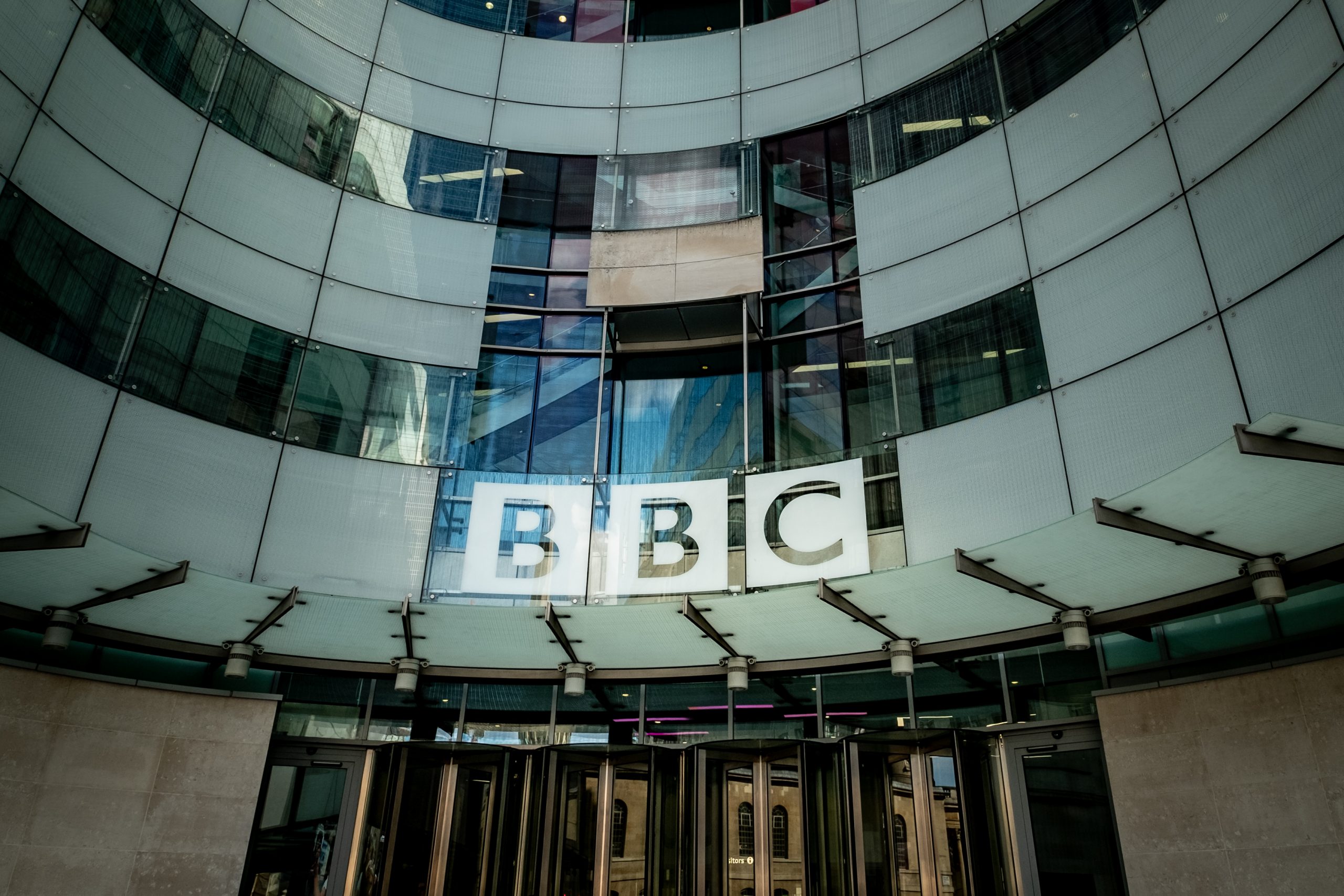ANALYSIS
Filling the gap left by RFE/RL
9 June 2025
The EU has given €5.5million to support RFE/RL, after its funding was frozen by the US President, while some international broadcasters have stepped up their European operations. But is it enough?

A €5.5 million fund has been released by the European Union to help support the US-administered international public broadcaster, Radio Free Europe / Radio Liberty (RFE/RL).
In March, the Trump Administration signed an executive order dismantling the US Agency for Global Media (USAGM) and the international public broadcasters under its umbrella, including RFE/RL, Voice of America (VOA), Radio Free Asia (RFA) and others who as a result, had their funding frozen.
Read more: “We are being massively outspent”: BBC WS on competition in the international media market
Legal challenges were brought forward, and in the case of RFE/RL, allowed for the disbursement of some funds – albeit weeks overdue. But regardless, it has remained a battle of survival for these organisations. Mass layoffs – up to 90 percent at RFA – occurred, and many services were cut. The most recent story on VOA’s website was posted on 15 March. And while the appeals court considers the case, VOA’s senior advisor, Kari Lake, cut hundreds of contractors. The court made it clear it won’t intervene or grant a temporary injunction.
But in the EU, RFE/RL found an ally. The call for emergency funding came from the four corners of the Union. In March, the Czech Minister for European Affairs Martin Dvorak issued a statement calling the EU members states to join forces to provide sustainable financial support for RFE/RL. Dvorak said that the role of RFE/RL “remains vital for providing independent information in authoritarian countries and that Europe must act swiftly to ensure its survival.” The statement was signed by 10 EU member states, including Sweden, who also donated €2 million to help the broadcaster stay afloat.
The sudden urge to keep RFE/RL on air triggered a debate on the Union’s responsibility to support USAGM media organisations. Several EU lawmakers stressed that Europe should be a haven for independent media and suggested that institutions provide financial help to RFE/RL. But others, like German far-right AfD MEP, Mary Khan, opposed the idea of the EU helping to fund RFE/RL, while another member of parliament said they had no business interfering in US affairs.
Latest Analysis
However, the EU went ahead and released the emergency fund, providing a “safety net for independent journalism.” EU foreign policy chief Kaja Kallas declared this aid necessary to support’s RFE/RL’s work in resisting authoritarian regimes.
But there is still a sizeable gap between what the EU has provided, and RFE/RL’s budget, which in 2024, stood at over $140 million (€122 million). Kallas accepted that the funding would not be enough to sustain all of RFE/RL’s operations, and would be prioritised for regions such as Central Asia and the Caucasus.
A gap to fill… and fast
RFE/RL, headquartered in Prague, Czechia, provided news content in 27 languages from Central and Eastern Europe, Central and South Asia, the Balkans, and the Caucasus. Its operations covered regions that many other international public broadcasters do not report from. It was also an indispensable source of news during the Cold War. “Coming from the other side of the Iron Curtain, actually it was [from] the radio that we got a lot of information,” Kallas said. “So, it has been a beacon of democracy, very valuable in this regard.”
Podcast: Is there still a need for international public service media?
At the announcement of RFE/RL and other USAGM organisations’ frozen funds, one of the main concerns centred on the information void left in their absence.
Jonathan Munro, BBC News and Current Affairs’ Global Director, recently told PMA about the why independent international public service media should try and fill this information gap, firstly, to make sure that “free media is available to those audiences,” and secondly, recognising that “unless other free media steps up, [then] those spaces will be occupied by state actors with different values.”
The main concern is that international broadcasters which are more aligned with a state, such as the international media services run by China and Russia, could step in as they already have done in certain parts of the world, and impose a certain narrative fitting their agenda. Larissa Bieler, from SWI swissinfo.ch warned about the aggressive disinformation driven by Russia and China around the globe and the threat it presents to democracy.
And while the EU tries to keep some RFE/RL operation afloat, some European public broadcasters are also expanding their services.
Is there a role for European PSM?

The Head of the TVP International Media Centre, Michał Broniatowski, told PMA that while losing RFE/RL would be a great loss for audiences – especially given what the international media represented for countries that used to be behind the iron curtain – there are other sources to which the audience could turn to.
The Polish broadcaster has been developing its international services for several years, focusing on providing information from the European perspective and countering Russian propaganda in Belarussian, Russian and Ukrainian. Recently, they started a new programme focusing on Moldova in Russian to reach the audience who is generally targeted by Russian propaganda. Broniatowski said that while it was not the main goal of the public broadcaster’s international services to replace RFE/RL, they have some resources to fill the gap.
Their channel Vot Tak serves a large audience across several countries where Russian is spoken, and “if needs be, special services can be launched so [TVP] can quickly start transmitting in local languages. Warsaw is very well located for such operations – infrastructure wise but also in terms of journalists. The city has become a focal point for journalists in exile coming from the East and Caucasus, who could be called if [TVP] needed to start these special services.”
“Coming from the other side of the Iron Curtain, actually it was [from] the radio that we got a lot of information. So, [RFE/RL] has been a beacon of democracy, very valuable in this regard.” – Kaja Kallas, EU Foreign Policy Chief
The current tense climate in the geopolitical and information landscape, fuelled by continual campaigns of mis-and disinformation, is prompting initiatives from public media organisations to address these growing threats. As Larissa Bieler told PMA, the mission of international public broadcasters “is going to become increasingly clearer in the future, as more geopolitical tensions and aggressive disinformation against facts and news are going to appear.”
More on International Public Media
Head of ABC International on Australia’s role in the Pacific
21st August 2025
Why funding for ABC International should be stepped up
15th April 2025
Swissinfo director on their potential defunding
14th April 2025
Technology driving expanded services
Other international public service media are also exploring ways they can expand their operations, and are using new technologies to do so. The BBC World Service announced in May its intention to extend its foreign-languages services. The initiative started with the launch of BBC News Polska, a Polish-language website to “deliver independent and impartial news” to Polish-speaking audience. The pilot project, made up of small teams of journalists and using AI technologies, is just the first step in the World Service’s plan to create more content in foreign languages, and to “serving more audiences around the world with content they can trust,” Munro said.
“Launching BBC News Polska, we are bringing together the most effective practices of working responsibly and innovatively with AI to reach Polish-speakers with the best of the BBC’s global and regional journalism,” said Deputy Global Director, BBC News, Fiona Crack. The World Service said it would continue to explore expanding with other non-English language services.
The World Service has also recognised the gap left by USAGM organisations. In April, the broadcaster launched a new BBC Burmese television service, which directly replaced the satellite video channel that was used by Voice of America.
However, to provide these extended services, extra resources are required. The BBC World Service, SWI Swissinfo.ch and TVP’s International Media Centre all stressed that public broadcasters are increasingly having to function under restricted budgets, while the demand for reliable and quality information increases. Additionally, they have to compete with powerful propaganda machines backed with extensive funds in a media landscape that mutates rapidly.

What can be done?
A question, however, remains with the EU, and what support it can provide to RFE/RL and other public media. The mandate of the parliament elected in 2024 revolves around the “European Democracy Shield”: a plan in which the defence of the press has an important role, and that seeks to address the challenges of growing disinformation and counter the threats to democratic processes. Several public and private media as well as civil society organisations called on the EU to urgently “do something” in the wake of USAGM’s defunding. According to TVP’s Broniatowski, the EU should face these threats by coordinating and financing public media programmes in foreign languages aimed at the countries surrounding the bloc which intend to become member states.
Meanwhile, despite the passage of the historic European Media Freedom Act last year – which is designed to safeguard media freedom, pluralism and editorial independence across Europe – its implementation remains problematic in some member states.
Hungary’s recently proposed foreign agent law mimics the Russian model to undermine independent media. This crackdown on media freedom adds to the already under-pressure media landscape in Hungary, with the public broadcaster muzzled by the governing Fidesz party. The EU has remained in a standstill, awaiting the outcome of the Parliamentary debate, which was delayed until autumn. If the controversial bill is passed, the EU could suspend some of Hungary’s rights, including its voting rights in the Council of the EU. Policy expert in European affairs Teona Lavrelashvili said the EU could also resort to the suspension of the funds for Hungary, an incentive that some European parliamentarians have advocated for.
Additionally, public media across Europe – both domestic and international – are facing significant financial pressure. While the World Service has warned of even further cuts, SWI swissinfo.ch might be defunded entirely. Swedish public media and Yle implemented organisational and structural reforms after their budgets were slashed. In Germany, the funding increase of ARD and ZDF was frozen until 2027, although a legal challenge from the public broadcasters is still going through the Constitutional Court. And in the neighbouring country, the ORF also announced a savings plan.
Some have asked whether the EU should be offering financial assistance to a US-administered public broadcaster, while European broadcasters are also at capacity? While the attack on RFE/RL is as much a blow to press freedom in Eurasia as it is to its own history and legacy, could this event could turn into an opportunity for Europe to take responsibility and secure reliable media organisations for its own citizens and those in neighbouring countries?
CPJ Deputy Advocacy Director in the EU, Tom Gibson, said that, “The European Democracy Shield should provide a clear roadmap to push existing reforms forward. EU member states should respond with both financial commitments to ensure its success and renewed political will to save journalism in Europe.”
Related Posts
14th April 2025
BBC WS director on competition in the international media market
BBC News’ Global Director on why the UK…
19th March 2025
PMA & others urge US to protect press freedom after USAGM order
More than 20 global media freedom…
18th March 2025
Why USAID cuts highlight the role of public media
The USAID funding cuts and its impact…








